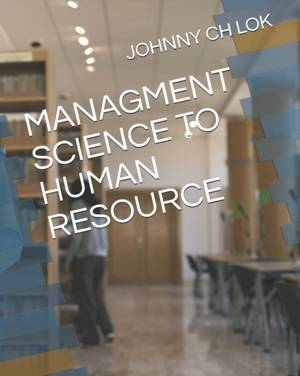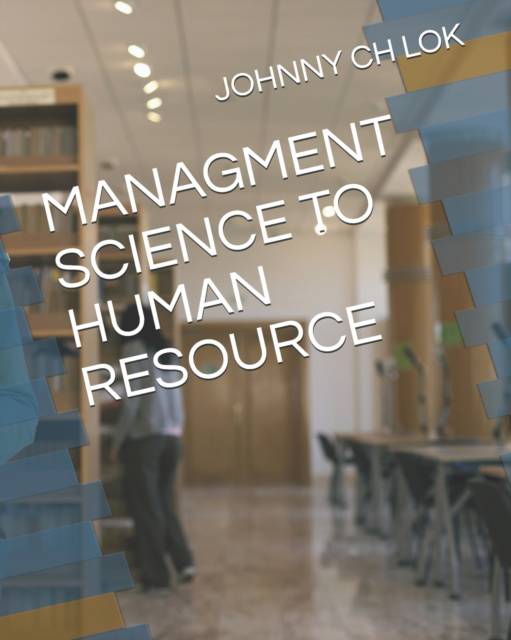
- Afhalen na 1 uur in een winkel met voorraad
- Gratis thuislevering in België vanaf € 30
- Ruim aanbod met 7 miljoen producten
- Afhalen na 1 uur in een winkel met voorraad
- Gratis thuislevering in België vanaf € 30
- Ruim aanbod met 7 miljoen producten
Zoeken
Omschrijving
ERG theory suggests people are motivated by three hierarchically ordered types of needs: existence needs (E), relatedness needs (R) and growth needs (G). A person may work at the same time, although satisfying lower order needs often takes place before a person is strongly motivated by higher level needs.Work motivation and job satisfaction means the relationship between the organization and its members is influenced by what motivates them to work and the rewards and fulfilment they derive from it. Motivation is typified as an individual phenomenon. Every person is unique and all the major theories of motivation allow for this uniqueness to be demonstrated in one way or another, it is as intentional to assume to be under the worker's control and behaviours that are influenced by motivation, such as effort expended. Motivation is through an understanding of internal cognitive processes, that is what people feel and how who think. This understanding should help the manager to predict likely behaviour of staff in given situations. The two factors of greatest importance are what gets people activated and the force of an individual to engage in desired behaviour ( direction or choice of behaviour). The purpose of motivation theories is predict behaviour. Motivation isn't the behaviour itself and it is not performance.
Specificaties
Betrokkenen
- Auteur(s):
- Uitgeverij:
Inhoud
- Aantal bladzijden:
- 154
- Taal:
- Engels
- Reeks:
Eigenschappen
- Productcode (EAN):
- 9781672748759
- Verschijningsdatum:
- 7/12/2019
- Uitvoering:
- Paperback
- Formaat:
- Trade paperback (VS)
- Afmetingen:
- 203 mm x 254 mm
- Gewicht:
- 435 g

Alleen bij Standaard Boekhandel
+ 106 punten op je klantenkaart van Standaard Boekhandel
Beoordelingen
We publiceren alleen reviews die voldoen aan de voorwaarden voor reviews. Bekijk onze voorwaarden voor reviews.











